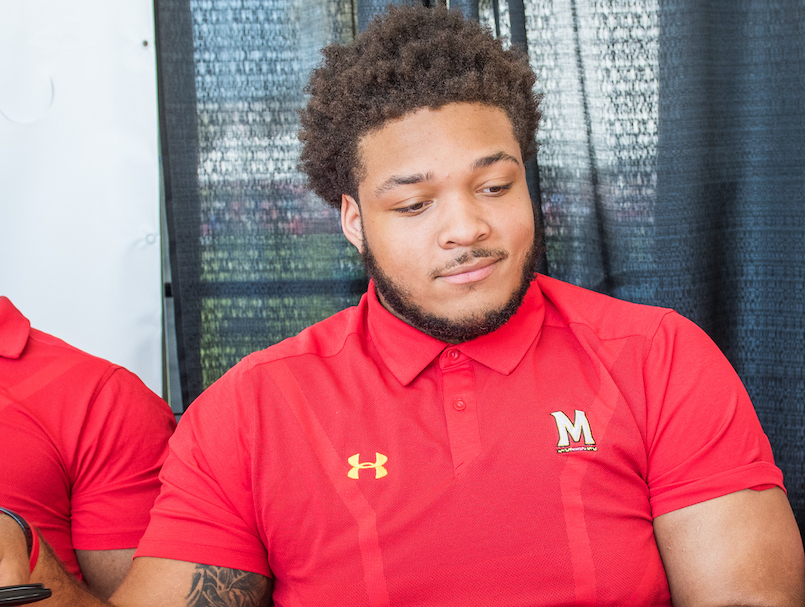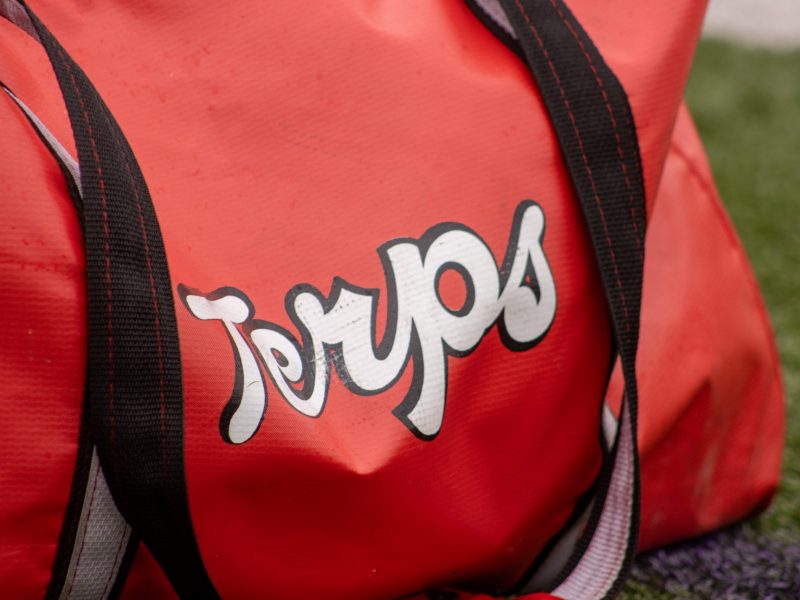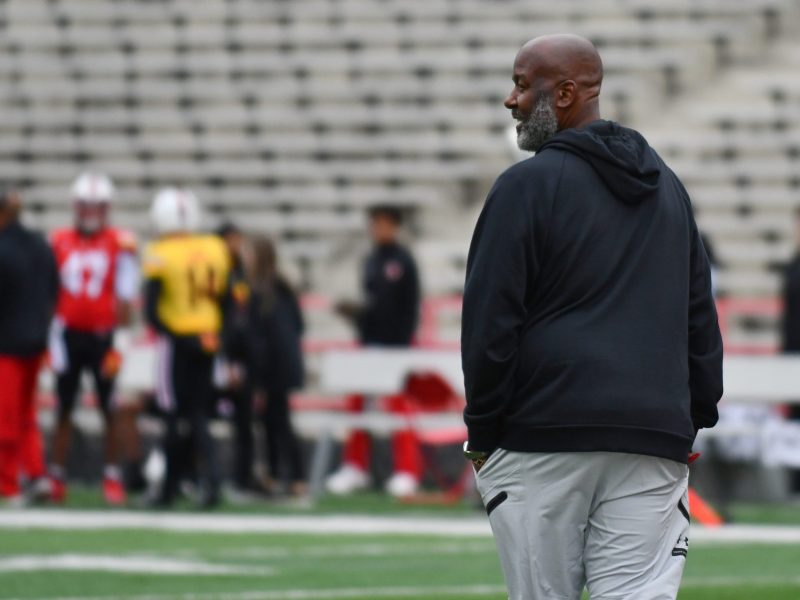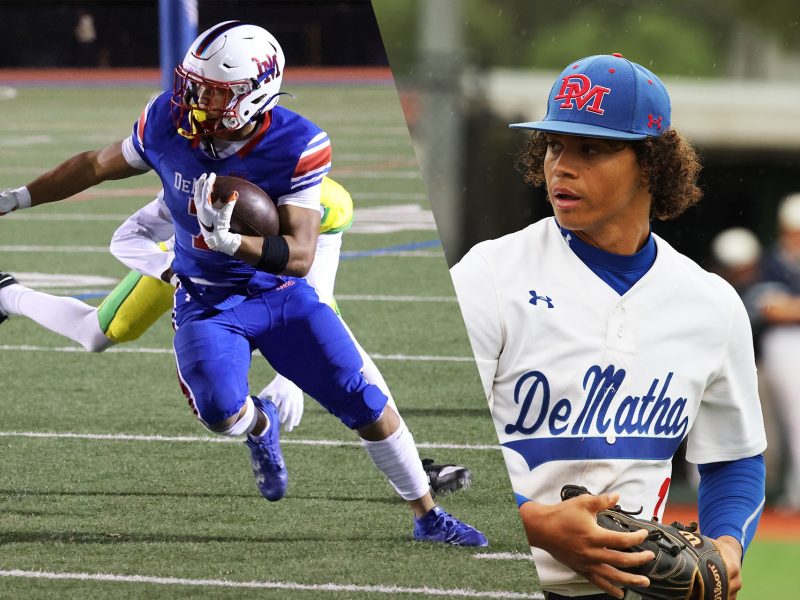Medical records contradict multiple statements from the University of Maryland about the May 29 football team workout where offensive lineman Jordan McNair suffered heatstroke, The Washington Post reported Sunday.
McNair, a rising sophomore, suffered a seizure during the workout at about 5 p.m., according to medical records reviewed by the Post. Prior to the Post’s report, the university had disputed that McNair had a seizure at that time, about an hour before 911 was called.
McNair was taken to the hospital that evening and died two weeks later, sparking an investigation into the football program and its procedures for player health. McNair’s family has hired the law firm Murphy, Falcon & Murphy, whose lead attorney, Billy Murphy, said earlier Sunday that a lawsuit was “absolutely probable.”
The May 29 workout began at 4:15 p.m, according to the university. McNair and other players ran a set of 10 110-yard sprints, which the university described as a “basic conditioning test.” ESPN reported on Friday that McNair needed help from teammates to complete the final sprint, with one player saying he was “flopping all around” and “obviously not in control of his body.”
Records obtained by The Diamondback in July show 911 was called at about 6 p.m. About 10 minutes later, a first responder called for paramedics and reported “male patient with seizure.” The records didn’t specify when McNair had the seizure.
ESPN quoted Murphy on Friday as saying McNair suffered a seizure at about 5 p.m. Murphy told ESPN the firm was concerned about “the unexplained one hour” between the seizure and 911 being called.
In response to ESPN’s report, the university issued a statement that read, in part: “At no point before or during the external review has a student-athlete, athletic trainer or coach reported a seizure occurring at 5 p.m.” This was the only fact from ESPN’s report that the university publicly disputed.
The 911 caller, who the university said was a staff member but hasn’t named, mentioned only that McNair was hyperventilating and unable to control his breath.
According to the Post, medical records show that an unnamed Maryland coach told medical personnel that McNair had recovered from a seizure and had begun talking before he “became agitated and started breathing differently.”
Previously, the university said McNair was “talking to our trainers throughout” the recovery process.
The 911 records show that an ambulance arrived on the campus at about 6:02. Five minutes later, a first responder reported that McNair had suffered a seizure and called for paramedics, which are separate from ambulances in Prince George’s County and are dispatched to more serious medical emergencies.
Paramedics were en route within a minute, and McNair was later transported to Washington Adventist Hospital, where he arrived at 6:36, according to 911 records.
McNair’s body temperature upon his arrival was 106 degrees, the Post reported, and doctors determined he had a “severe heat stroke” and noted he was in an altered state and had no gag reflex. He was covered in cold water and ice after his arrival.
Exertional heatstroke occurs when a patient has a body temperature of at least 104 degrees and displays some central nervous system dysfunction, according to the Korey Stringer Institute, a nonprofit dedicated to preventing sudden death in sport.
The 2014-15 NCAA Sports Medicine Handbook and KSI both recommend immediate cold water immersion to treat heatstroke.
Rebecca Stearns, a doctor who studies heatstroke in athletes at KSI, said prompt, correct treatment of heatstroke yields a 100 percent survival rate. When the victim doesn’t survive, it’s because “sometimes it’s not recognized right away, or there isn’t medical care on-site, or there aren’t the resources, or there’s a delay,” she said.
By 7:20, McNair’s body temperature had dropped to 102, the Post reported. Doctors noted “patient improving” at 8:32. McNair was airlifted to R Adams Cowley Shock Trauma Center in Baltimore later that night, where he remained until his death 15 days later.
After its initial report on the circumstances surrounding McNair’s death, ESPN published another report Friday outlining an abusive culture within the football program. Coach DJ Durkin and others were alleged to have pressured players to push past their physical limits; one player said McNair thought that “if he stopped, they would challenge his manhood, he would be targeted.”
In the wake of these reports, the university placed Durkin, head football athletic trainer Wes Robinson, head strength and conditioning coach Rick Court and athletic training director Steve Nordwall on paid leave. Murphy argued on Sunday that the university should fire Durkin immediately.



